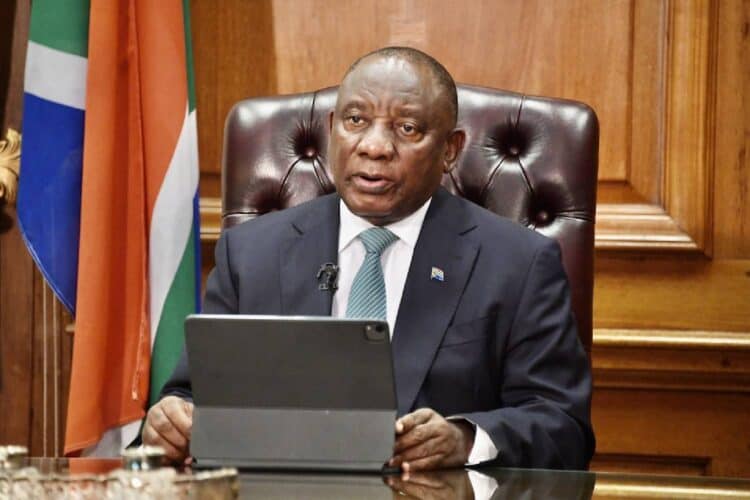The South African Reserve Bank (SARB) has concluded its investigation into the case of millions of undisclosed foreign currency stolen from Cyril Ramaphosa’s Phala Phala farm in 2020, declaring that the president did not commit any wrongdoing.
Phala Phala farm case: Reserve Bank clears Cyril Ramaphosa
The investigation’s outcome has significant implications for the President and the ongoing discussions surrounding the case.
Here’s a breakdown of the findings and the broader context:
SARB’s Clearing of Ramaphosa
In a report released on the bank’s official website, Governor Lesetja Kganyago confirmed that President Cyril Ramaphosa has been cleared of any violations of Exchange Control Regulations.
The report emphasised that there was no evidence of a perfected transaction, leading the SARB to conclude that no contravention of the Exchange Control Regulations had occurred, neither by Ntaba Nyoni Estates CC nor by President Ramaphosa.
Origins of the Investigation
The investigation stems from a criminal complaint filed by former spy chief Arthur Fraser in June 2022.
Fraser alleged that Ramaphosa failed to report the burglary at his farm, which could be a violation of the Prevention of Organised Crime Act.
Furthermore, Ramaphosa’s detractors have raised concerns about potential corruption and money laundering, with even former president Thabo Mbeki expressing concerns over the optics surrounding the saga.
Acting public protector Advocate Kholeka Gcaleka’s exoneration of Ramaphosa’s conduct in the theft was met with mixed reactions.
While she found that Ramaphosa had not violated the executive members’ ethics code, the opposition parties, including the African Transformation Movement (ATM), challenged the report in court, rejecting its conclusions.
The SARB’s conclusion that there were no irregularities in President Ramaphosa’s involvement in the Phala Phala farm case is expected to have significant ramifications:
- Political Dynamics: Ramaphosa’s opponents within his own party hoped that the scandal could undermine his position and influence, potentially leading to his resignation from his role as head of state. However, these hopes were dashed as he not only retained his position but was also re-elected as the president of the African National Congress (ANC).
- Parliamentary Challenges: An independent panel appointed by Parliament found grounds for impeachment based on Ramaphosa’s conduct during the saga. However, the ANC’s parliamentary majority quashed these efforts, further solidifying Ramaphosa’s political standing.
- Legal Action: The ATM’s challenge to the public protector’s report in court could have implications for the President’s position, depending on the outcome of the legal proceedings.






